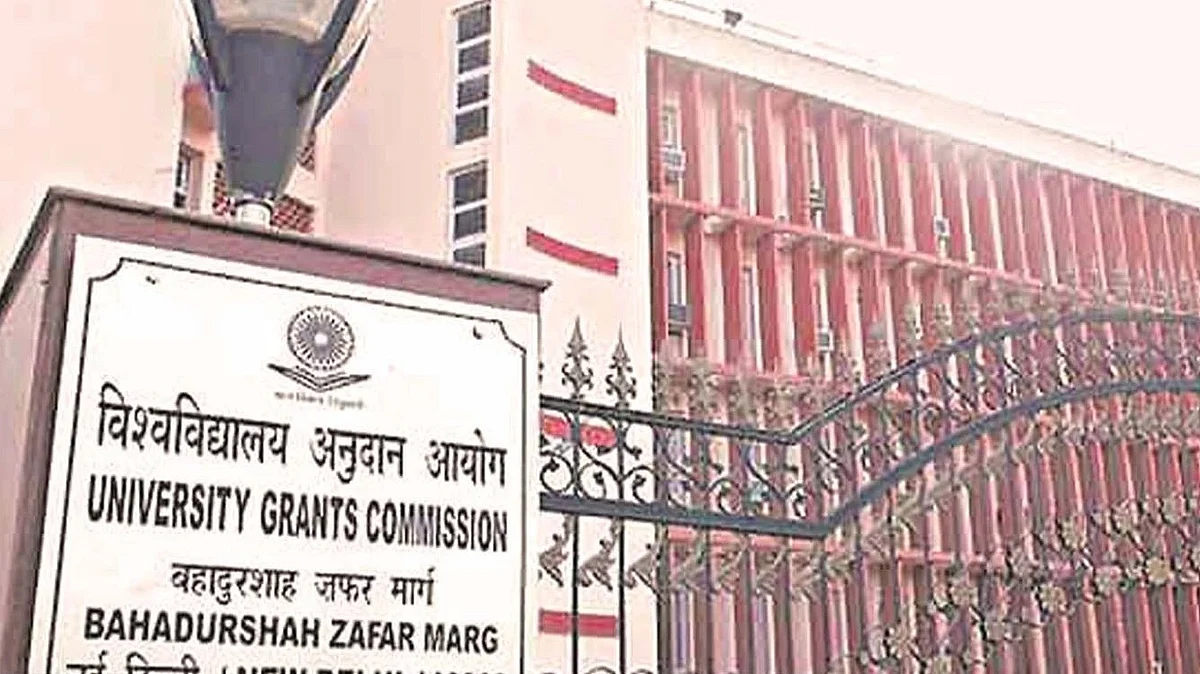UGC proposes twice-a-year admissions from 2024–25 academic session
Chairperson M. Jagadesh Kumar says biannual admissions will help students maintain motivation and enable efficient resource distribution in HEIs

Indian universities and higher education institutions will now be allowed to offer admissions twice a year, on the lines of foreign universities, says University Grants Commission (UGC) chief Jagadesh Kumar said.
The two admission windows will be in July–August and January–February from the 2024-25 academic session.
What are the benefits?
"If Indian universities can offer admission twice a year, it will benefit many students such as those who missed admission to a university in the July–August session due to a delay in the announcement of board results, health issues or personal reasons," said Kumar.
"Biannual university admissions will help students maintain motivation since they do not have to wait one full year to be admitted if they miss admission in the current cycle. With biannual admissions in place, industries can also do their campus recruitment twice a year, improving employment opportunities for the graduates," he added.
The UGC chief explained that twice-yearly admissions will also enable the higher education institutes (HEIs) to plan their resource distribution — such as faculty, labs, classrooms and support services — more efficiently.
"Universities worldwide already follow a biannual admission system. If Indian HEIs adopt the biannual admission cycle, our HEIs can enhance their international collaborations and student exchanges. As a result, our global competitiveness will improve, and we will align with the global educational standards," Kumar said.
"If HEIs adopt biannual admissions, they need to work on administrative intricacies, good planning for increased use of available resources and providing seamless support systems for the smooth transition of students admitted at dissimilar times of the year," he added.
Institutions retain autonomy to implement:
Kumar clarified that it will not be mandatory to offer biannual admissions for universities, but those HEIs that have the required infrastructure and teaching faculty can utilise the opportunity.
"Offering biannual admissions will not be mandatory for the HEIs. It is the flexibility that UGC provides to the HEIs which want to increase their student intake and offer new programmes in emerging areas. To be able to admit students twice a year, HEIs must make suitable amendments to their institutional regulations," he said.
At present, universities and colleges admit students annually in July–August every year, in the regular mode. Therefore, all higher education institutions (HEIs) in India follow an academic session that begins in July–August and ends in May–June.
Last year, the UGC allowed students to take admission in open and distance learning (ODL) and online modes biannually in both January and July during an academic year.
Kumar said that last year's decision had helped nearly half a million students join their degree programmes without waiting for one full academic year.
"After the UGC permitted two cycle admissions in a year for open and distance learning (ODL) and online modes, as per the information furnished by the HEIs on the UGC portal, in addition to a total of 19,73,056 students were enrolled in July 2022 and an additional 4,28,854 students joined in January 2023 in ODL and online programmes," he said.
"Biannual admissions can substantially increase the gross enrolment ratio and make India a 'global study destination' as envisioned in the National Education Policy (NEP) 2020," Kumar added.
However, the Aam Aadmi Party teachers' organisation AADTA has been quite critical of the UGC proposal.
According to the teachers' body's statement: 'This directive is nothing more than an ill-conceived attempt to artificially inflate the gross enrollment ratio (GRE), showing a blatant disregard for the quality of higher education.
'Since the inception of NEP 2020, we have been vocal critics of this data-centric approach that prioritises numbers over substance. Coupled with severe budget cuts and faculty shortages in publicly funded universities, this move is a clear indication of a shift towards online distance learning online and distance learning (ODL), Massive Open Online Course (MOOC) and SWAYAM (Indian government portal for MOOC).'
With inputs from PTI
Follow us on: Facebook, Twitter, Google News, Instagram
Join our official telegram channel (@nationalherald) and stay updated with the latest headlines